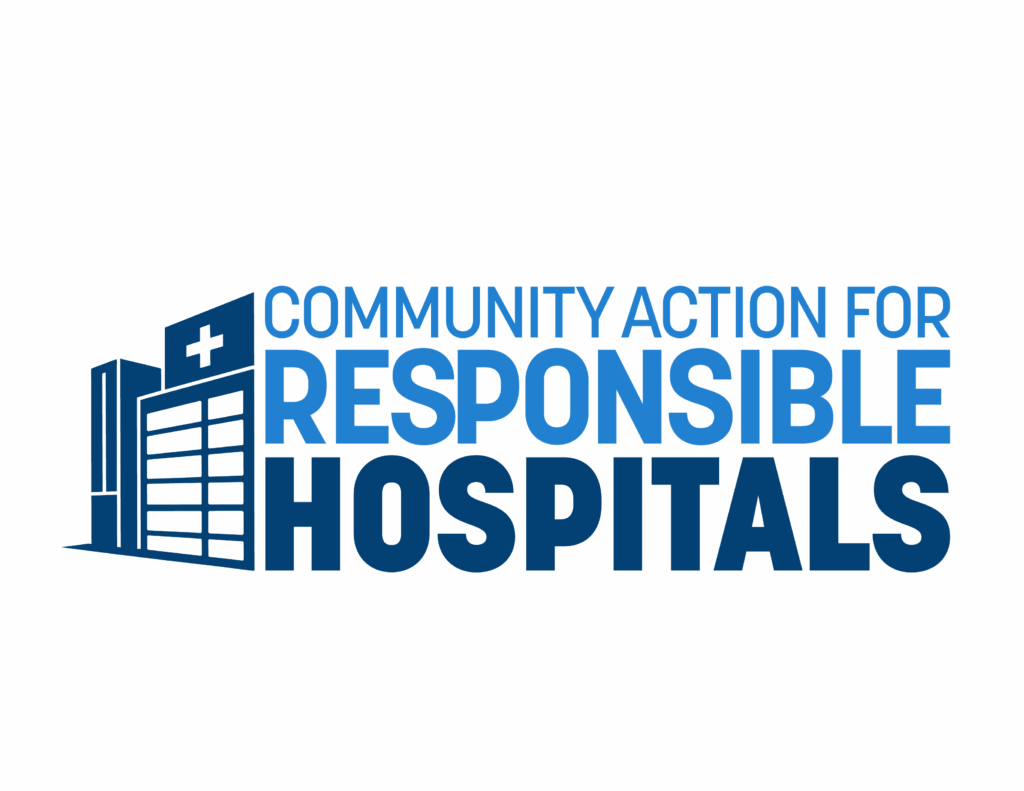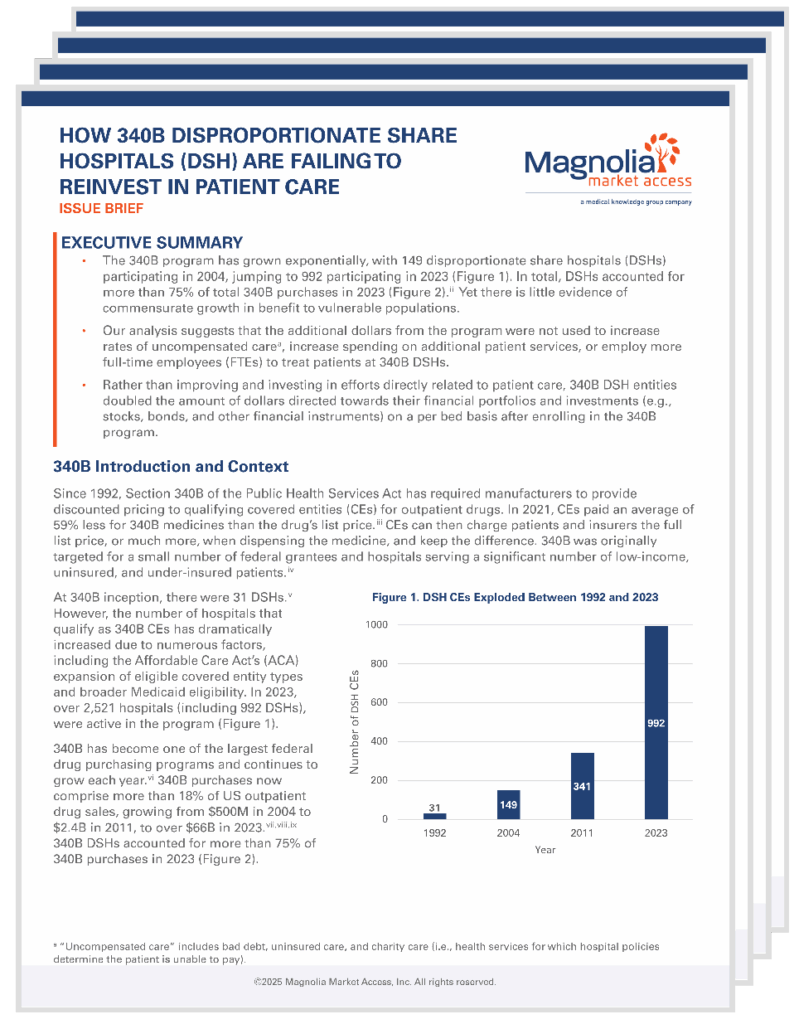How 340B Disproportionate Share Hospitals (DSH) are Failing to Reinvest in Patient Care
340B DSHs Use Profits to Boost Financial Investments,
Not Invest in Patient Care
Although not a universally agreed upon principle, supporters of the 340B program argue that it is used to “address health care needs in underserved communities.”i However, there are no requirements for how 340B DSHs use this revenue, and they are not required to report this information. Magnolia Market Access analyzed financial data reported by DSHs prior to, and following, entry into the 340B program. Our analysis found that after joining the 340B program, DSH entities did not appear to increase spending in ways that could be considered to directly improve patient care, but instead were increasing other financial investments, specifically stocks, bonds, and other financial instruments.
Key insights include:
- The number of DSH entities in the 340B program has increased dramatically since 2010. In recent years, revenue collected by 340B DSHs has skyrocketed.
- Our analysis of hospitals’ self-reported financial data found that once DSHs started participating in the 340B program, they increased their financial investments (stocks, bonds, etc.), but did not increase their staffing, or spending on uncompensated care.
- DSHs that joined 340B prior to 2004 provided significantly more uncompensated care per bed than those that joined more recently, but all saw this commitment decrease from 2015 to 2022.
Download the issue brief for additional information on how 340B revenue by DSHs was used for financial gains, and the importance of program oversight to ensure vulnerable patients benefit.

This analysis and issue brief were made possible through support from Community Action for Responsible Hospitals (CARH).
